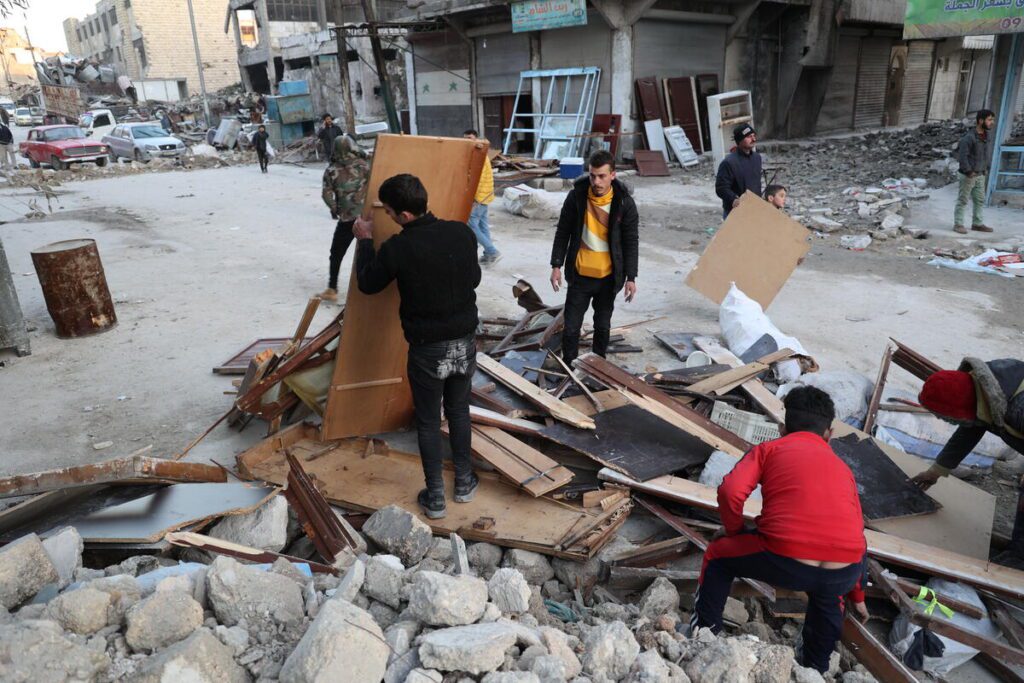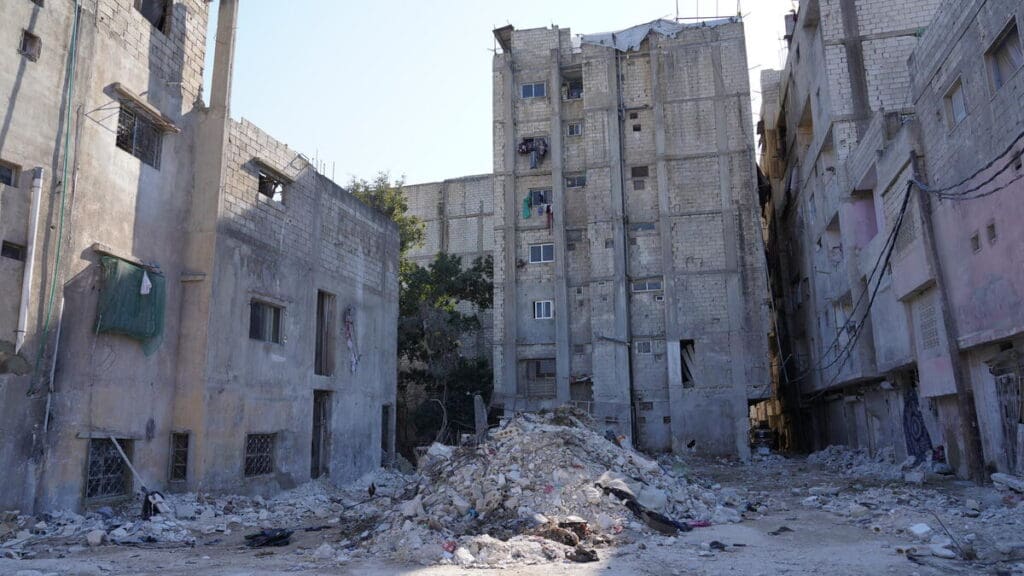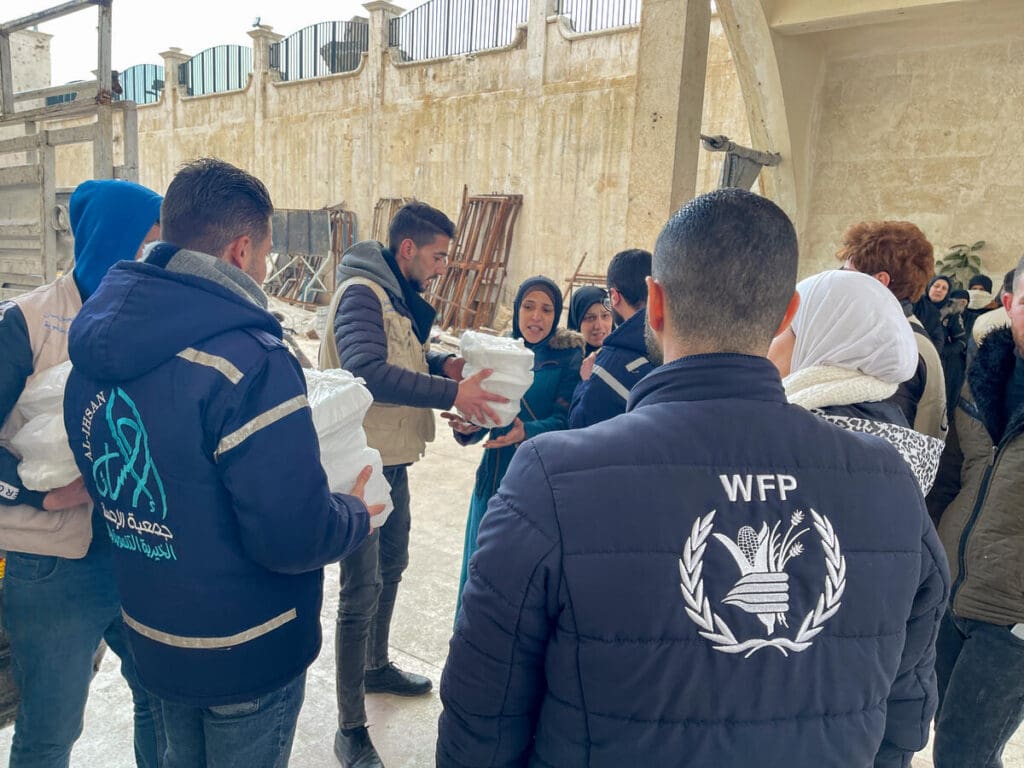How to Help Earthquake Survivors in Türkiye and Syria

The devastating earthquakes that hit Türkiye (Turkey) and Syria affected 18 million people. That’s equivalent to the entire populations of New York City, L.A., Chicago, Houston and Denver combined. Below, we break down your frequently asked questions about this disaster and make it easy for you to help the survivors.
What Happened in Türkiye and Syria?
A 7.8 magnitude earthquake struck southern Türkiye – just 50 miles from the Syrian border – before dawn on Monday, February 6. Over 50,000 people were killed and many more were injured. It was Türkiye’s most powerful earthquake recorded since 1939. A 7.5 magnitude quake and hundreds of aftershocks followed, causing more buildings to collapse.

Destruction in Latakia due to the earthquake
Just two weeks later, on February 20, another 6.3 magnitude earthquake struck the Hatay province of southern Türkiye. Tremors were felt hundreds of miles away in Syria, Jordan, Lebanon and Iraq. In Syria, nearly 1,000 buildings collapsed or were declared unsafe due to quake damage.
Who Was Affected by the Earthquakes?
The earthquakes exacerbated an already severe humanitarian crisis in northwest Syria where 90% of the population depends on humanitarian aid. Over a decade of conflict has displaced nearly 3 million Syrians from their homes in the northwest, damaged critical infrastructure and pushed more than 12 million people across the country into hunger.
In Türkiye, the quakes affected both Turkish citizens and Syrian refugees. The country hosts the world’s largest refugee population including about 3.5 million Syrians. Tens of thousands of these refugees live in the southeast, near the epicenter of the earthquakes.
What Are the Needs in Türkiye and Syria?
The situation in Türkiye and Syria remains dire. Survivors, displaced from their homes, are sleeping outside in brutal winter conditions. They need clothes, blankets, medicine and – perhaps most importantly – food.
The quakes damaged infrastructure that was vital for the production and storage of food, including bakeries and warehouses. The now limited supply has caused the cost of basic foods like bread and rice to rise sharply in quake-affected areas of Syria. Survivors urgently need assistance from organizations like the United Nations World Food Programme (WFP).
What Is WFP Doing to Help Earthquake Survivors?
Within 24 hours of the disaster, the U.N. World Food Programme launched an emergency response and provided ready-to-eat food to affected families. From hot meals to emergency boxes of food, the U.N. World Food Programme was one of the first agencies to reach survivors.

WFP food distribution to displaced people in Aleppo. Delivering hot meals and ready-to-eat rations to families displaced by earthquakes continued over night hours and are still ongoing. Families displaced by earthquakes took refuge in temporary shelters in extreme weather conditions with limited access to basics.
To date, the U.N. World Food Programme has assisted over 2 million people in both Türkiye and Syria. In Türkiye, the U.N. World Food Programme has reached nearly 1 million people:
- Through local community kitchens, Turkish citizens and Syrian refugees have received hot cooked meals.
- Through mobile kitchens, the U.N. World Food Programme also dispatched food for people displaced from their homes and living in camps.
In Syria, 1.3 million quake-affected people have received emergency food assistance:
- Through local partners, the U.N. World Food Programme has reached Syrians with hot meals, ready-to-eat rations and emergency boxes of food.
- Syrians across the country, including in the northwest, continue to receive their regular monthly food or cash assistance from the U.N. World Food Programme.
How Can I Help Survivors of the Earthquakes in Türkiye and Syria?
The U.N. World Food Programme is the world’s first responder to emergencies like the earthquakes in Syria and Türkiye. Monetary donations fuel this global response and provide immediate relief to families affected by such disasters.
Survivors will need help long after the media coverage slows down, so do your part to stay informed and engaged:
- Follow us on Instagram, Facebook, TikTok, LinkedIn and Twitter
- Subscribe to our email list to receive timely updates about breaking emergencies
- Activate your network and invite others to send a warm meal to someone experiencing hunger
Our work is far from over, and you play a key role in it. Thank you for your support.




